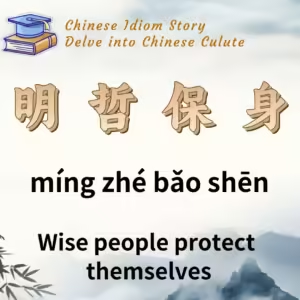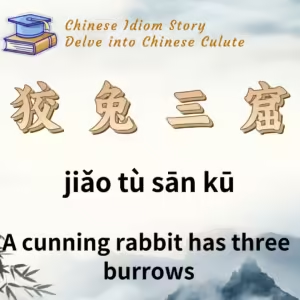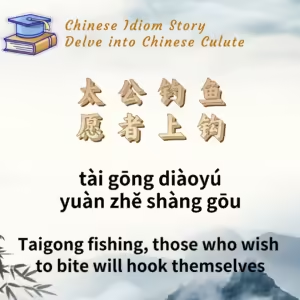
Chinese Idiom: 明哲保身 (Ming Zhe Bao Shen)
English Translation: Wise people protect themselves
pīn yīn: míng zhé bǎo shēn
Idiom Meaning: Originally meant that wise individuals can discern the truth and skillfully turn crises into safety; it is now used to describe a mindset of avoiding principled struggles in favor of personal gain, often seen as a vulgar way of muddling through life.
Historical Source: The Book of Songs (《诗经》) – The Great Elegies: The People (大雅 · 烝民).
Idiom Story:
During the Zhou Dynasty, there was a talented official named Zhong Shanfu, who served loyally under King Xuan of Zhou. He played a significant role in defending the kingdom against foreign invasions.
One day, King Xuan ordered Zhong Shanfu to go to Qi to fortify the city’s defenses against potential threats. Without hesitation, he set off for his task. Meanwhile, a general named Yin Jifu composed a poem praising Zhong Shanfu, stating:
“既明且哲,以保其身;夙夜匪懈,以事一人。”
(Wise and discerning, he protects himself; tirelessly dedicated, he serves his sovereign.)
This means that Zhong Shanfu was a person of great insight, capable of ensuring his own well-being while being devoted to the state’s affairs without any slackening of effort.
Over time, the phrase “既明且哲,以保其身” was simplified to “明哲保身.” Although it originally carried a positive connotation, highlighting a wise person’s ability to navigate dangers and ensure safety, it has since evolved into a pejorative term. It now typically refers to those who avoid principles and only seek to safeguard their own interests, thereby living in a mundane and self-serving manner.






